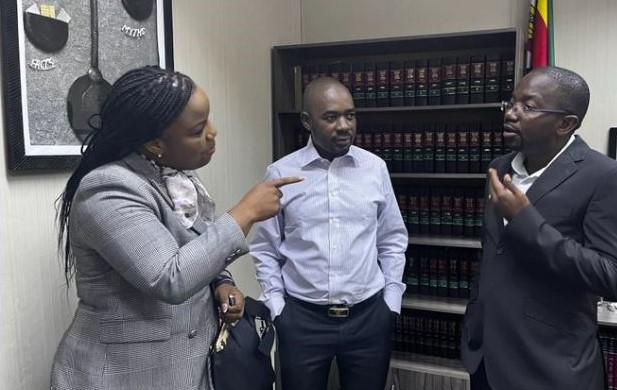News / National
Mahere criticises govt's plans to issue Zimbabweans with title deeds to farms
18 Jan 2025 at 06:38hrs |
0 Views

Prominent opposition political activist and lawyer, Fadzayi Mahere, has criticized the government's plans to issue title deeds for farms seized and redistributed during Zimbabwe's controversial land reform program. Mahere contends that such an initiative would contravene the Constitution unless specific amendments are made.
In a strongly worded statement shared on social media, Mahere argued that the Constitution, under Section 72(4), explicitly prohibits the private ownership of agricultural land acquired through the land reform program. "The Govt cannot purport to give title deeds in respect of agricultural land. Section 72(4) of the Constitution forbids this. All such land vests in the State and is not capable of private ownership," Mahere stated.
She further emphasized that any attempt to grant title deeds without amending the Constitution would be unlawful. "You cannot validly grant title deeds for these farms without violating the Constitution. You would have to amend Section 72 first," she said. "Whatever wild goose chase this gentleman is on is illegal. There are numerous Supreme Court decisions on this point. I suggest you take advice from the Attorney-General before you make fools of yourselves. It's a mess."
Mahere's comments come amidst reports of renewed government efforts to provide title deeds to farmers as part of a broader initiative to stimulate agricultural productivity and provide security of tenure. However, the legal implications of such a move have sparked intense debate among legal experts, civil society, and opposition politicians.
Critics of the government's approach argue that issuing title deeds without proper constitutional amendments could lead to legal disputes and undermine the credibility of Zimbabwe's legal framework. Supporters, on the other hand, maintain that formalizing ownership could enhance agricultural investment and land use efficiency.
This latest controversy highlights the enduring complexities surrounding Zimbabwe's land reform program, which has been a focal point of political and economic debate since its inception in the early 2000s. As the government seeks to balance legal, economic, and social considerations, it remains to be seen whether it will heed calls for constitutional compliance or proceed with its plans in their current form.
In a strongly worded statement shared on social media, Mahere argued that the Constitution, under Section 72(4), explicitly prohibits the private ownership of agricultural land acquired through the land reform program. "The Govt cannot purport to give title deeds in respect of agricultural land. Section 72(4) of the Constitution forbids this. All such land vests in the State and is not capable of private ownership," Mahere stated.
She further emphasized that any attempt to grant title deeds without amending the Constitution would be unlawful. "You cannot validly grant title deeds for these farms without violating the Constitution. You would have to amend Section 72 first," she said. "Whatever wild goose chase this gentleman is on is illegal. There are numerous Supreme Court decisions on this point. I suggest you take advice from the Attorney-General before you make fools of yourselves. It's a mess."
Mahere's comments come amidst reports of renewed government efforts to provide title deeds to farmers as part of a broader initiative to stimulate agricultural productivity and provide security of tenure. However, the legal implications of such a move have sparked intense debate among legal experts, civil society, and opposition politicians.
Critics of the government's approach argue that issuing title deeds without proper constitutional amendments could lead to legal disputes and undermine the credibility of Zimbabwe's legal framework. Supporters, on the other hand, maintain that formalizing ownership could enhance agricultural investment and land use efficiency.
This latest controversy highlights the enduring complexities surrounding Zimbabwe's land reform program, which has been a focal point of political and economic debate since its inception in the early 2000s. As the government seeks to balance legal, economic, and social considerations, it remains to be seen whether it will heed calls for constitutional compliance or proceed with its plans in their current form.
Source - online
Join the discussion
Loading comments…





























